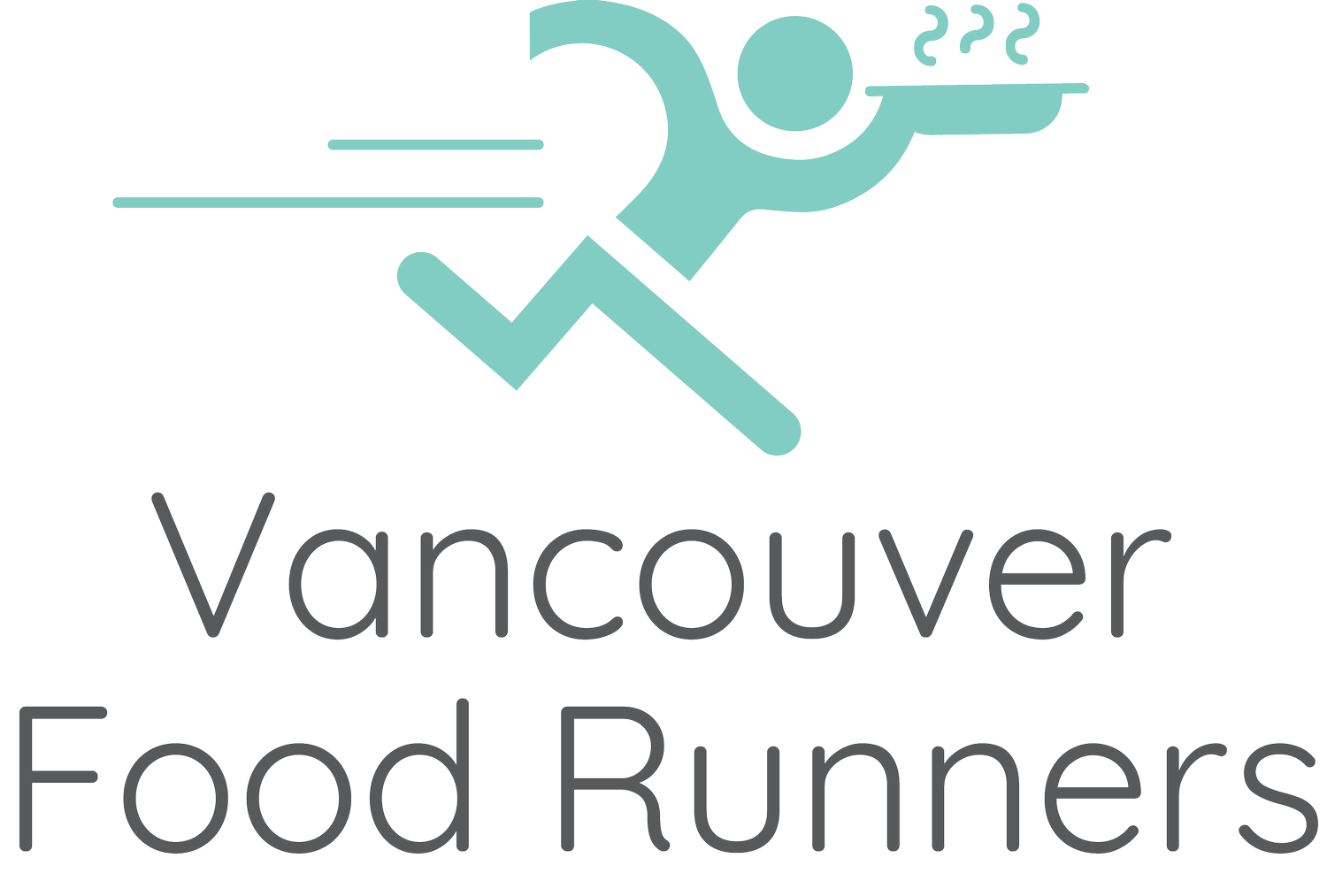Eloise Comuzzi
VFR: Eloise, tell us a bit about yourself and what drew you to choosing Vancouver Food Runners for your student practicum experience?
Eloise Comuzzi: Hello! My name is Eloise Comuzzi, and I recently earned a BA from the University of Victoria in Health and Community Services. For the last semester of my program, I worked as a practicum student with VFR. The degree program develops public health leaders to support a just, effective, and inclusive health and community sector.
The BA program allowed me to tailor my assignments to support my interest in community building through food initiatives. Some of the highlights of my time as a student include hosting 30+ community dinners, receiving a Sprout Fund grant through Capital Region Food and Agriculture Initiatives Roundtable (CRFAIR) to bring a school assignment on youth food literacy to the community, and developing a better understanding of how food security influences community health and well-being.
The final semester of the degree program gives students the opportunity to apply course work and lived-experience to a practicum. I was drawn to work with Vancouver Food Runners because it uses app-based technology to lead cross-sectoral collaboration to address food waste and food insecurity in Vancouver. VFR conducts an annual feedback survey to yield key qualitative and quantitative data to support the needs of community partners. My role as a practicum student was to develop, coordinate, and finalize the 2022 Community Partner Feedback Survey.
VFR: You touched upon the social determinants of health in your final practicum paper. What are the social determinants of health, and how do they relate to food insecurity?
EC: The social determinants of health are social and economic factors that influence health outcomes. Factors include income distribution, education, job security, working conditions, early childhood development, food insecurity, housing, social exclusion, social safety network, health services, aboriginal status, gender, race, and disability (1).
Complex interactions and feedback loops exist in the social determinants of health: for example, food insecurity is the inability to consume an adequate diet of quality or sufficient quantity of food in socially acceptable ways, or the uncertainty that one is able to do so (2). The cycle of food insecurity and chronic disease begins when an individual or household cannot afford to buy enough nutritious food to meet their dietary needs and food preferences for an active and healthy life. Various chronic diseases and adverse mental health outcomes in direct relation to household food insecurity include hypertension, coronary heart disease, stroke, cancer, kidney disease, depression, and anxiety.
VFR: Through your research, you learned about some of the long-term consequences of food insecurity, both at the individual level and for Canada’s healthcare system. Please share about this.
EC: The consequences of food insecurity are a significant burden on our healthcare system. Compared to the annual health care costs in food-secure households, the average annual costs of healthcare are 16% higher in households with marginal food insecurity, 32% higher in households with moderate food insecurity, and 76% higher in households with severe food insecurity (3). This implies that addressing food insecurity through effective public policy has the potential to offset considerable public expenditures on healthcare and improve overall population health.
VFR: Part of your practicum experience involved developing and circulating the 2022 VFR Community Partner Feedback Survey (CPS). What were some of the key takeaways from this experience for you?
EC: VFR conducts an annual feedback survey to strengthen existing community partner relations. The CPS asks community partners pertinent questions to improve operations at VFR, address concerns, better understand the people and populations served, and to further knowledge development for public policy initiatives. Working on the CPS was a great opportunity for me to connect with over 50 community partners in Vancouver to learn how VFR supports food programming at their organization.
It was rewarding to translate the data from the survey responses to the backend logistics system because I know that accurate information is critical to the operation of real-time, coordinated efforts in the private, public, and volunteer sectors to redistribute food to those who need it most.
In addition, a key takeaway from working on the 2022 CPS is that food insecurity is not caused by a lack of food skills, budgeting, or nutritional knowledge. The root cause of food insecurity is a lack of sufficient income to purchase food.
VFR: You touch upon the importance of collaboration to solve big problems in your paper. Tell us more about this.
EC: Food insecurity is a complex and dynamic challenge that requires collaborative action across public, private, and volunteer sectors. The flexibility of the Food Rescue Hero app is key to engaging all sectors, making VFR successful at achieving the common goal of reducing food insecurity. It was also interesting to learn how VFR collaborates with other organizations in Vancouver, including Rethink2gether, a sustainability consulting company, and Food Stash, another local food recovery organization, to achieve the common goal of reducing food waste in the city.
References:
1. Mikkonen, J., & Raphael, D. (2010). Social Determinants of Health: The Canadian Facts. Toronto, Canada: York University School of Health Policy and Management.
2. Government of Canada. (2020). Household food insecurity in Canada. https://www.canada.ca/en/health-canada/services/food-nutrition/food-nutrition-surveillance/health-nutrition-surveys/canadian-community-health-survey-cchs/household-food-insecurity-canada-overview.html
3. Tarasuk, V., Cheng, J., de Oliveria, C., Dachner, N., Gundersen, C., & Kurdyak, P. (2015). Association between household food insecurity and annual health care costs. Canadian Medical Association Journal, 187(14) 429–36. https://doi.org/10.1503/cmaj.150234
Be the first to read our E-newsletter
Subscribe to our bi-weekly newsletter that arrives to your email inbox every other Saturday!

